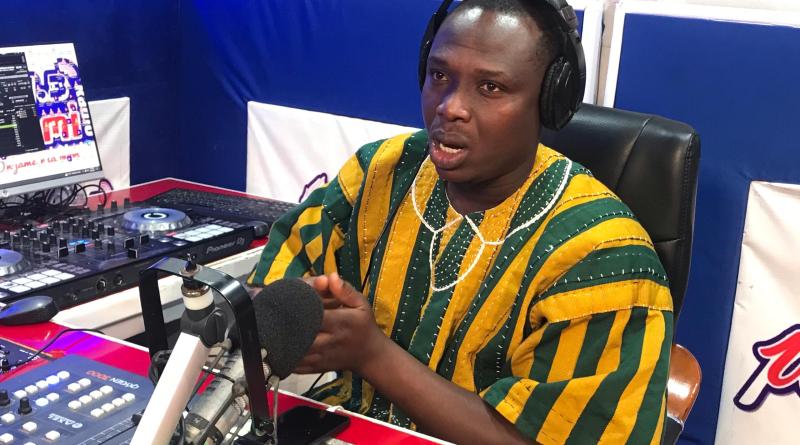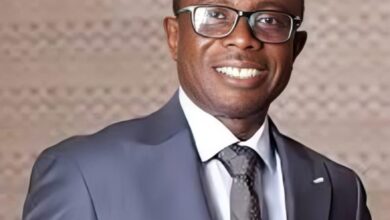Accusing Without Proof In a Time of Mourning Is Not Journalism, It’s Cruelty

By Melvin Tarlue, a journalist and media relations management expert
By any democratic measure, the abduction of a journalist is alarming. It strikes at the heart of media freedom, chills public discourse, and threatens the press’s ability to speak truth to power. The reported abduction of Ghanaian broadcast journalist Akyemkwaa Nana Kofi Asare by unknown gunmen in Ejisu Krapa within the Ashanti Region on Tuesday, August 12, 2025, is no exception. A free press is a non-negotiable pillar of democracy.
And yet, as we condemn his abduction, we cannot — and must not — ignore a painful truth: Kofi Asare’s own conduct, just days before his abduction, was a shameful dereliction of the most basic human decency required of a journalist.
On Saturday, August 9, while a nation reeled from the horrific helicopter crash that claimed eight precious lives — including two sitting ministers, a deputy national security coordinator, and highly respected public servants — Kofi Asare sat on Wontumi TV and, without a shred of evidence, accused President John Dramani Mahama of having a hand in the tragedy. This was not investigative journalism. This was not whistleblowing. This was recklessness. Worse — it was cruelty dressed up as commentary.
The helicopter crash was not the kind of scandal where one can lazily speculate and get away with it. This was not a minister accused of misusing state funds, where the rough-and-tumble of politics might excuse sharp words. This was a disaster that left wives widowed, children fatherless, and communities bereft of breadwinners. These men — Ghana’s Defence Minister, Dr. Edward Omane Boamah; Environment Minister, Ibrahim Murtala Mohammed; Acting Deputy National Security Coordinator, Alhaji Limuna Muniru Mohammed; and five other patriots — were lost in flames, burnt beyond recognition. Their families are not just mourning; they are living with the haunting knowledge of the way their loved ones died. To emphasize, the victims didn’t just “pass away.” They were burned to death. Their families didn’t just “lose someone.” They lost fathers, sons, brothers, uncles, cousins, breadwinners—people whose absence will echo through dinner tables, school fees, and family gatherings for years to come.
To throw out, without proof, that such a calamity was orchestrated by the very man who called them colleagues and friends — and who himself stood before the nation around 9:00pm on Thursday night, August 8, visibly shaken, saying, “This tragedy represents a deep personal loss for me” — is not just insensitive. It is inhumane. Why would you want to cause a man who is grieving, a reputational damage with false accusations? No empathy? No compassion? Is this journalism? No, not journalism at all. It is a high-degree of insensitivity from someone who should know that a nation is mourning eight persons who died in a painful and heartbreaking manner.
Don’t get me wrong — I am not saying that it is always wrong to accuse someone who is grieving, even if they may have committed a grievous offense. Allegations can, and must, be made when they are backed by credible proof, and when exposing the truth serves the interest of the nation, the grieving family, and the larger society. If indeed Kofi Asare had proof, and if indeed President John Dramani Mahama had a “hand” in the helicopter crash, then grief could not shield him from accountability. Truth does not wait for mourning to end.
But here lies the problem: Kofi Asare had no proof. Not a shred of truth. And yet, in the heat of a national tragedy, he chose to throw out a reckless accusation. In doing so, he not only trampled on the raw grief of families but also ignored the national security implications of such a baseless claim. To accuse a sitting President of orchestrating the deaths of his own appointees, without evidence, is not journalism — it is irresponsibility weaponized.
As Archbishop Desmond Tutu once reminded us, “We are made for goodness, we are made for love, we are made for friendliness.” Compassion is not just a virtue; it is a necessity. And as former UN Secretary-General Kofi Annan said, “When you are entrusted with public responsibility, you must listen with empathy and act with humanity — because without compassion, security itself is at risk.”
Kofi Asare’s words failed this test. He ignored empathy, neglected compassion, and dismissed the larger consequences for both humanity and national security.
The management of Wontumi TV rightly described Kofi Asare’s remarks as “inappropriate, unfounded, and contrary to our values of professionalism, accuracy, and fairness.” They apologized not just to President Mahama and the NDC, but also to the grieving families whose sorrow had been trampled upon in pursuit of cheap political point-scoring.
Journalism at its best holds power to account — but it also holds sacred the dignity of the human condition. Empathy is not an optional extra in our craft. As the late American author Maya Angelou once said, “People will forget what you said, people will forget what you did, but people will never forget how you made them feel.”
In moments of national tragedy, our words carry weight far beyond the newsroom. They can wound, or they can heal.
They can inflame, or they can unite. President Mahama himself urged Ghanaians after the crash: “Let us set aside our differences and offer collective compassion to the bereaved families. This is not a time for division or political point-scoring.” Kofi Asare ignored that call.
Yes — we may defend his right not to be abducted for what he said. But we must also face the uncomfortable truth that freedom of expression is not freedom from moral responsibility.
Being a journalist does not absolve one of the duty to be humane. When families are burying fathers, uncles, brothers, and sons — when a nation is mourning patriots who died in service — empathy should be our compass, and compassion our headline.
In the end, the test of journalism is not just whether we can speak, but whether we can speak with both courage and conscience. Kofi Asare failed that test. And no matter the outcome of his abduction case, the shadow of that failure will linger far longer than the gunmen’s unmarked cars.
